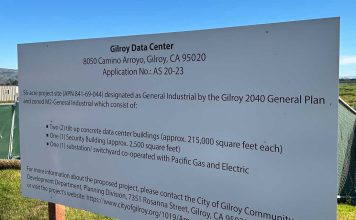Being a conservative in politics and religion, I can’t help but
express my opinion about the first theme of Lisa Pampuch’s column
(The Dispatch June 21) concerning her proud stance to be a
liberal.
Being a conservative in politics and religion, I can’t help but express my opinion about the first theme of Lisa Pampuch’s column (The Dispatch June 21) concerning her proud stance to be a liberal. After quoting two dictionary definitions of “liberal”, Ms. Pampuch then asks the question “It doesn’t sound like a horrible thing, now does it?” And of course, on the surface, just looking at those definitions, it sure doesn’t.
Now Ms. Pampuch has every Constitutional right to hold whatever political and religious philosophy she wants to hold. In fact, I think it’s interesting that she has apparently joined the liberal camp as a “convert” from her own original upbringing of conservatism. For example, in her Dispatch column dated May 2, 2003, she wrote the following “”I attended fundamentalist, evangelical Christian schools from kindergarten through grade 12 and fundamentalist, evangelical churches …” and also “It’s also true that I no longer espouse fundamentalism or evangelicalism.” And that’s her choice to have made. However, I’d be curious to understand the reasons she made her switch, since it would offer a conservative as myself some insight of her thought process to why she became persuaded that conservative Christian religious philosophy is inferior or incorrect as compared to liberal religious philosophy.
But I want to analyze the two dictionary definitions of “liberal” that Ms. Pampuch proudly trumpets, and attempt to demonstrate that most Americans of liberal persuasion today are not honest enough to admit or see that there is a major discrepancy between what they say they believe philosophically and what they actually practice.
The two definitions of “liberal” she referenced are:
• Not limited to or by established, traditional, orthodox or authoritarian attitudes, views, or dogmas; free from bigotry.
• Favoring proposals for reform, open to new ideas for progress and tolerant of the ideas and behavior of others; broad-minded.
If both of these definitions are taken to be correct, then it seems reasonable to conclude that the proper application of liberalism is based upon a frequency of always, if not mostly always applying these definitions as a working philosophy to the stuff of everyday life. But that’s where I see liberalism as a working philosophy failing.
While the definition says “Not limited to or by established, traditional, orthodox or authoritarian attitudes, views, or dogmas” the facts from American legal history in the last 40 years demonstrate that liberalism’s bent is to consistently and grossly exceed established and traditional limits of law and morays (as determined in the United States by a democratic majority of the populace), and use any means to exceed those limits by applying the inconsistent logic of compartmentalization.
For example, a liberal would no doubt hold that Catholic bishops are noble and idealistic when they oppose capital punishment and welfare cuts, but are dangerous fanatics when trying to legislate their theology when defending the right to life for the unborn. Such a dichotomy of application violates the very defined nature of liberalism – claiming to be tolerant and broad-minded – which should certainly apply without distinction across the board to non-liberal ideas and beliefs.
As far as “being free from bigotry” (defined as “one who is strongly partial to one’s own group, religion, race, or politics and is intolerant of those who differ”) it’s not incorrect to state that a group such as PETA (People for the Ethical Treatment of Animals that itself holds a “liberal” philosophy), has consistently demonstrated by its actions that it is “strongly partial” to its own cause and purpose, by applying unconventional behavior (often unlawful) to fulfill its own goals.
Therefore such a group and its members are indeed “bigoted” even while claiming to be free of bias.
While most liberals would probably deny it, the facts remain that being liberal does not make one free from bigotry. The same could also be said of liberal groups like the Sierra Club, and the ACLU. To say that these people are not “strongly partial” to their own causes, goals, and purposes is to deny the facts, and is a contradiction to the very reason for their existence as organizations.
Another fallacy between liberal philosophy and liberal practice is the matter of claiming to be “tolerant of the ideas and behavior of others; broad-minded.” This again is simply not true. Cross the philosophical pathways of liberalism, and liberals are the first ones to scream “intolerant” or “bigot” or “racist” or “narrow-minded.”
A good example of such liberal intolerance is to actually think that a moment of silent prayer at the beginning of the school day constitutes government indoctrination into forced religious belief and an intrusion on parental authority, while sex education beginning in kindergarten, condom distribution in middle school, and multiculturalism are values-neutral.
So Lisa, be proud to be a liberal, but please don’t tell me that today’s liberals really fit this dictionary definition. Remember, as the old song goes, “it’s what you do, not what you say, that’s gonna count on judgment day, so practice, practice what you preach” – without selective application.










